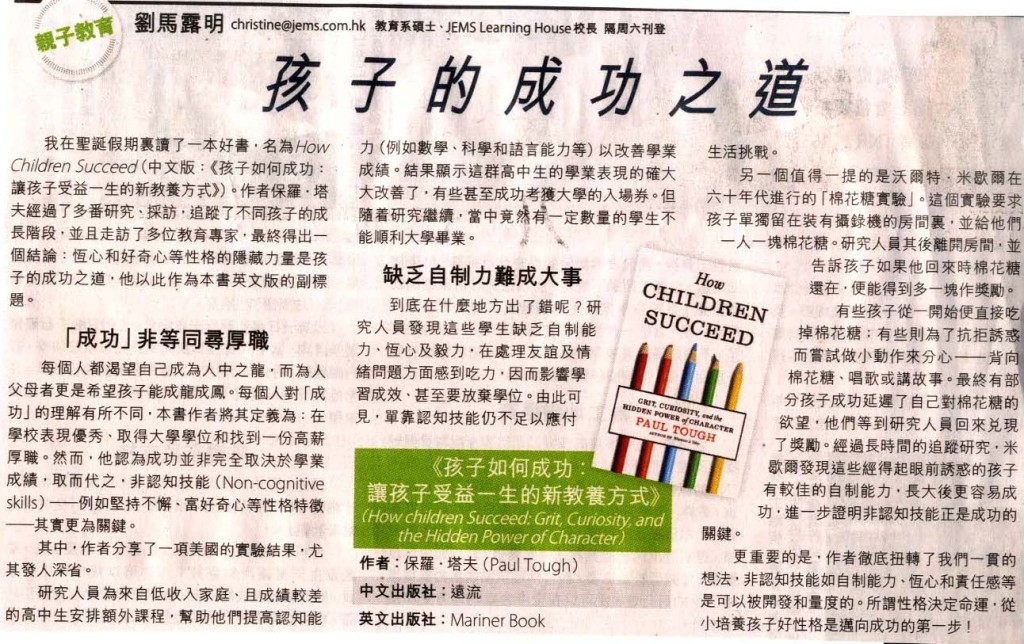Over Christmas, I read a book that I really enjoyed. Entitled ‘How Children Succeed’, the author goes on a journey of discovery to find out what makes children succeed. Through looking a series of scientific studies, interviewing and studying individuals over a period of time, speaking to experts in the field of education, the author Paul Tough comes to the conclusion that is the subtitle of the book: ‘Grit, Curiosity and the Hidden Power of Character’.
In the world today, every person is aiming for success. Every parent wants his child to succeed and thrive in the world. Each person’s definition of success may vary but in the book, success is defined as doing well at school, attending and completing college and finding a well-paying job. And in Paul Tough’s findings, he found that a person’s success can be determined by non-cognitive skills (including grit, curiosity, character traits) more than by academic results.
One of the stories Tough shares is a program in the United States that worked with low-income and low-performing students in high school. These students were given extra classes to help them improve their academic scores and the focus was entirely on their cognitive skills (Math, science, language skills). They found that after the programme, students improved in their scores, so much so that many were about to go to college, something that they would not have been able to had they not worked on their academic, cognitive skills. However, they continued tracking these students in college and they found that a considerable number of them did not complete college. So their academic scores got them into college but they didn’t complete it. Why?
They found that these students struggled with self-control, perseverance, diligence, handling friendships and emotional issues which caused them to suffer in their academics. So they chose not to continue with their degree. So, even though they had the cognitive skills to handle college, they were not equipped with the non-cognitive skills to thrive.
In the book, he shares the ‘Marshmallow Experiment’ that was executed in the 1960s by Walter Mischel. In the experiment, children were placed in a room individually and were given a marshmallow on a plate. They were told that if they could refrain from eating the marshmallow and wait until the adult returned to the room, he/she could have 2 marshmallows instead of the 1. As the experimenter left the room, the child would be left alone in the room whilst being secretly filmed. Some children could not resist and ate the marshmallow. Others tried distracting themselves by looking in the other direction, singing or making up stories. And some were able to withstand the temptation and wait for the adult to return. They later tracked these children during school years and college then adult life and found that they children who had more self control and were able to delay gratification, did better in school and were more successful as adults. So their non-cognitive skill contributed to their success.
Tough also shares how non-cognitive skills can be measured and can be taught. Contrary to popular belief, character traits such as self-control, perseverance, responsibility etc can be nurtured and taught. And if those character traits are the ones that can determine success, it’s a good idea to start now!
Christine Ma-Lau
JEMS Learning House
Founder and Principal
